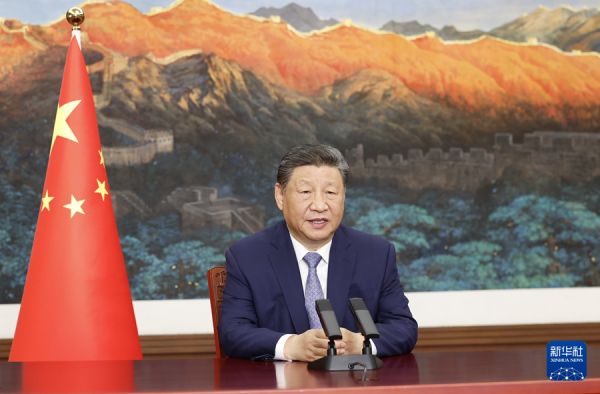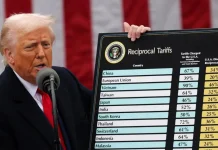By He Yin, People’s Daily
On April 23, Chinese President Xi Jinping delivered a speech via video link at the Leaders Meeting on Climate and the Just Transition. He called on countries to adhere to multilateralism, deepen international cooperation, accelerate the just transition, and strengthen results-oriented actions – chartingthe course for enhancing solidarity and cooperation in global endeavors for climate governance.
This year marks the 10th anniversary of the Paris Agreement and the 80th anniversary of the founding of the United Nations(UN). In today’s world, global climate governance is facing multiple challenges. Some major country’s persistent pursuit of unilateralism and protectionism has seriously impacted global climate governance.
According to the World Meteorological Organization, 2024 was the warmest year on record, accompanied by devastating and extreme weather. The UN has repeatedly warned that global warming is accelerating, leaving no room for setbacks in climate governance, and meeting long-term temperature targets will require urgent and intensified efforts.
Multilateralism remains the most effective solution to the global challenge of climate change, with solidarity and cooperation the only viable path forward.
As the international situation becomes more volatile and turbulent, there is an even greater need for all countries to firmly safeguard the UN-centered international system and the international order underpinned by international law, and firmly safeguard international fairness and justice.
The United Nations Framework Convention on Climate Change (UNFCCC) and the Paris Agreement are the fundamental legal basis for international cooperation on addressing climate change. Although unilateralism and protectionism has seriously impacted international rules and the international order, history will, as always, move forward through twists and turns.
It is essential for all countries to uphold the spirit of solidarity and cooperation. They should rise above estrangement and conflict with openness and inclusiveness, boost technological innovation and industrial transformation through cooperation, and facilitate the free flow of quality green technologies and products, so that they can be accessible, affordable and beneficial for all countries, especially the developing ones.
China will continue to support other developing countries, particularly Small Island Developing States, least developed countries, and African nations, through South-South cooperation on climate change, contributing positive energy and creatingfavorable conditions for multilateral climate governance.
Effective climate action must be rooted in the realities of each country. Respect for different starting points, development stages, and national conditions and capacities is critical to ensuring a just transition – one that unfolds within the framework of sustainable development and poverty reduction.
Green transformation is not only an essential response to climate change, but a new engine for economic and social development. Such transformation must be people-centered and pursued in a way that advances the well-being of people and climate governance in tandem, and strike a balance between multiple goals including environmental protection, economic growth, job creation, and poverty alleviation.
All parties should earnestly honor the principle of common but differentiated responsibilities. Developed countries are obliged to extend assistance and support to developing countries, help drive the global shift toward green and low-carbon development, and contribute to the common and long-term well-being of people of all countries.
Harmony between man and nature is a defining feature of Chinese modernization, and China is a steadfast actor and major contributor in promoting global green development.
China is one of the initial parties to the UNFCCC and among the first signatories and ratifiers of the Paris Agreement. It is home to 70 percent of the photovoltaic components and 60 percent of wind power equipment worldwide, and contributes a quarter of the world’s newly-added area of afforestation.
The country has ramped upits green and low-carbon transition, leading the world in the speed and scale of “greening.” It has built the world’s largest and most complete new energy industrial chain, providing strong momentum forinternational cooperation on climate change and driving the implementation of the Paris Agreement.
China will announce its 2035 nationally determined contributions covering all economic sectors and all greenhouse gases before the UN Climate Change Conference in Belem, Brazil. UN Secretary-General Antonio Guterres said that this newly announced commitment to cutting emissions goals is “extremely important” for global climate action.
Climate change is a common challenge of all humanity, and addressing it demands a collective response.However the world may change, China will not slow down its climate actions, will not reduce its support for international cooperation, and will not cease its efforts to build a community with a shared future for mankind.
China is ready to work with all parties, keeping in mind the progress of humanity and the well-being of all people, to earnestly honor the principle of common but differentiated responsibilities, do the utmost respectively and collectively, and build a clean, beautiful, and sustainable world together.












